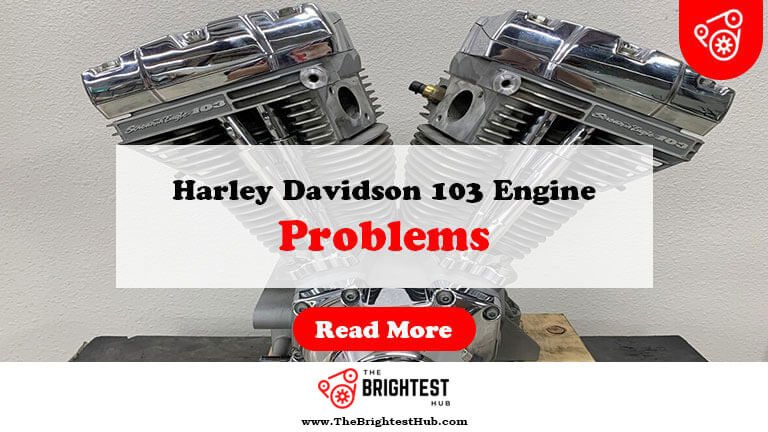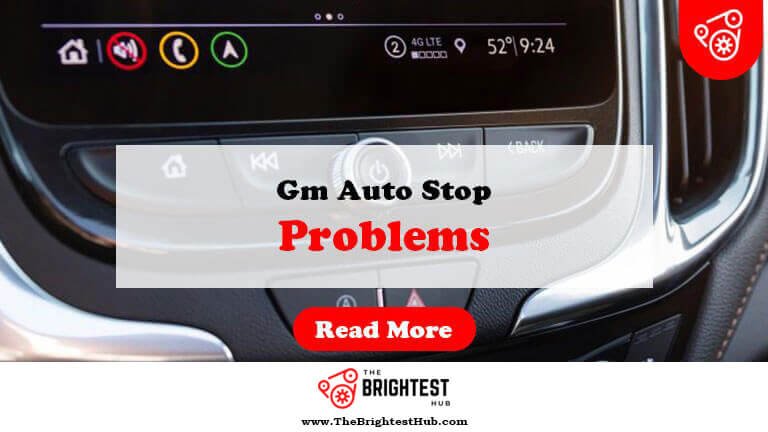Chevrolet 6.0 Engine Problems: Solutions and Insights
Chevrolet 6.0 engines often face problems like oil consumption, overheating, and timing chain failures. Regular maintenance can help mitigate these issues.
The Chevrolet 6. 0 engine is known for its robust performance and reliability. However, like any engine, it can develop specific problems over time. Owners may experience issues such as excessive oil consumption, which can lead to engine wear. Overheating is another common concern, often caused by a failing thermostat or cooling system.
Additionally, timing chain failures can disrupt engine performance and require costly repairs. Understanding these potential problems helps drivers take proactive measures. Regular inspections and timely maintenance can prolong the engine’s life and enhance overall performance. Staying informed about these concerns is crucial for Chevrolet 6. 0 owners.
Introduction To Chevrolet 6.0 Engine Issues

The Chevrolet 6.0 engine is popular for its power and performance. Many drivers love its capability. However, some owners face troubles with this engine. Understanding common issues helps in identifying problems early.
Popularity And Performance
The Chevrolet 6.0 engine is known for its:
- Strong towing capacity
- High horsepower output
- Good reliability
This engine is found in trucks and SUVs. Its popularity comes from its ability to handle tough tasks. Many drivers appreciate its smooth operation and efficiency.
Common Complaints
Despite its strengths, the Chevrolet 6.0 engine has some common issues:
| Issue | Description |
|---|---|
| Oil leaks | Gaskets may wear out, causing leaks. |
| Overheating | Coolant problems can lead to engine overheating. |
| Fuel injector failure | Clogged injectors affect engine performance. |
| Knocking noise | This can indicate serious engine issues. |
Owners report these problems frequently. Regular maintenance helps prevent many issues. Early detection can save time and money.
Oil Consumption Concerns
The Chevrolet 6.0 engine is known for its power and durability. However, it has some common issues, particularly with oil consumption. Many owners report using more oil than expected. Understanding the symptoms and remedies is crucial for maintaining engine health.
Symptoms Of Excessive Use
Identifying oil consumption issues early helps prevent serious damage. Look for these symptoms:
- Frequent oil top-offs: Needing to add oil often.
- Oil leaks: Visible oil spots under the vehicle.
- Excessive exhaust smoke: Blue smoke when accelerating.
- Low oil pressure: Warning lights on the dashboard.
- Engine knocking: Unusual sounds from the engine.
Proven Remedies
Addressing oil consumption issues can save time and money. Here are some proven remedies:
- Regular oil changes: Change oil every 3,000-5,000 miles.
- Use high-quality oil: Choose oil with the right viscosity.
- Inspect gaskets and seals: Replace any worn parts.
- Check the PCV valve: Clean or replace if clogged.
- Monitor driving habits: Avoid aggressive driving.
| Symptom | Possible Cause | Remedy |
|---|---|---|
| Frequent oil top-offs | Oil leaks or consumption | Inspect for leaks; use high-quality oil |
| Excessive exhaust smoke | Oil burning | Check valve seals; clean PCV valve |
| Engine knocking | Low oil levels | Regular oil checks; prompt top-offs |
Taking action early can extend the life of your Chevrolet 6.0 engine. Keep an eye on symptoms and follow the remedies for the best results.
Knocking And Tapping Noises
The Chevrolet 6.0 engine can develop knocking and tapping noises. These sounds may indicate serious issues. Early detection is key to avoiding costly repairs. Understanding these noises helps you maintain your vehicle effectively.
Identifying The Sounds
Knocking and tapping noises often come from the engine. Here’s how to identify them:
- Knocking: A deep, rhythmic sound.
- Tapping: A lighter, sharper noise.
Pay attention to the following:
| Sound Type | Possible Cause |
|---|---|
| Knocking | Piston slap or worn bearings. |
| Tapping | Faulty lifters or low oil pressure. |
Troubleshooting Steps
Follow these steps to troubleshoot the noises:
- Check the engine oil level.
- Inspect for oil leaks.
- Listen while the engine is running.
- Look for any warning lights on the dashboard.
- Consult a mechanic if the sounds persist.
Regular maintenance prevents these issues. Keep your engine in top shape.
Persistent Overheating Challenges
The Chevrolet 6.0 engine faces persistent overheating issues. These problems can lead to serious damage. Understanding the causes helps prevent costly repairs. Keeping the engine cool is essential for its lifespan.
Causes Of Temperature Rises
Several factors can cause the Chevrolet 6.0 engine to overheat:
- Low Coolant Levels: Insufficient coolant can lead to overheating.
- Faulty Thermostat: A malfunctioning thermostat can block coolant flow.
- Clogged Radiator: Dirt and debris can block airflow.
- Water Pump Issues: A failing water pump won’t circulate coolant effectively.
- Leakages: Cracks or leaks in the cooling system can cause coolant loss.
Cooling System Fixes
Fixing cooling system problems is vital for engine health. Here are some effective solutions:
- Check Coolant Levels: Regularly inspect and refill coolant.
- Replace Thermostat: Ensure the thermostat functions correctly.
- Clean Radiator: Remove debris and dirt from the radiator.
- Inspect Water Pump: Replace if it shows signs of wear.
- Seal Leaks: Repair any leaks in hoses or connections.
Regular maintenance helps avoid overheating. Stay proactive with these fixes for a healthy engine.
Faulty Fuel Injection System
The Chevrolet 6.0 engine can face various issues. One common problem is a faulty fuel injection system. This system delivers fuel to the engine. Problems can lead to poor performance and increased emissions.
Signs Of Injector Failure
Recognizing the signs of injector failure is crucial. Here are some indicators:
- Engine Misfires: The engine may shake or stall.
- Poor Fuel Economy: Increased fuel consumption is common.
- Rough Idling: The engine may run unevenly at idle.
- Hard Starting: The vehicle may struggle to start.
- Check Engine Light: This light may illuminate on the dashboard.
Maintenance And Repair
Regular maintenance can help prevent fuel injector issues. Here are some tips:
- Fuel System Cleaning: Regular cleaning can prevent buildup.
- Use Quality Fuel: Choose fuel with proper additives.
- Check Filters: Replace fuel filters as needed.
- Inspect Injectors: Regularly check for leaks or damage.
For repair, follow these steps:
- Diagnose the issue using a scanner.
- Remove the faulty injector.
- Replace with a new or refurbished injector.
- Test the system for leaks.
In some cases, professional help is necessary. A qualified mechanic can ensure proper repairs. This can save time and money in the long run.
Throttle Body Issues
The throttle body is a crucial part of the Chevrolet 6.0 engine. It controls the amount of air entering the engine. Problems in this area can lead to serious performance issues.
Impact On Engine Performance
Throttle body issues can cause various performance problems. Here are some common effects:
- Reduced power output: The engine may struggle to accelerate.
- Rough idling: The engine may shake or stall.
- Poor fuel efficiency: You may notice increased fuel consumption.
- Check engine light: An illuminated warning can signal throttle body problems.
These issues affect driving experience. Timely diagnosis is essential to avoid further damage.
Cleaning And Replacement Options
Cleaning or replacing the throttle body can improve performance. Here are some options:
- Throttle body cleaning: Use a throttle body cleaner. Remove dirt and grime.
- Inspect for damage: Check for cracks or wear.
- Replacement: If cleaning fails, consider a new throttle body. Choose OEM or high-quality aftermarket parts.
| Option | Advantages | Disadvantages |
|---|---|---|
| Cleaning | Cost-effective and quick. | May not fix severe issues. |
| Replacement | Long-lasting solution. | Higher initial cost. |
Regular maintenance can prevent throttle body issues. Keep your Chevrolet 6.0 engine running smoothly.
Sensor Failures And Electrical Glitches
Chevrolet 6.0 engines often face issues with sensors and electrical systems. These problems can lead to poor performance and engine malfunctions. Understanding these issues helps in timely repairs.
Common Sensor-related Problems
Sensor failures can cause various engine issues. Here are some common sensor-related problems:
- Mass Airflow Sensor (MAF): Incorrect readings affect air-fuel mixture.
- Throttle Position Sensor (TPS): Can lead to poor acceleration and stalling.
- Coolant Temperature Sensor: Incorrect data can cause overheating.
- Oxygen Sensors: Faulty sensors can reduce fuel efficiency.
- Camshaft and Crankshaft Sensors: Affect engine timing and performance.
Diagnostic And Repair Techniques
Diagnosing sensor issues requires specific techniques. Use the following methods:
- Scan Tool: Connect a diagnostic scanner to read error codes.
- Visual Inspection: Check wiring and connectors for damage.
- Multimeter Testing: Measure voltage and resistance for faulty sensors.
- Replace Faulty Sensors: Use OEM parts for replacements.
Repairing electrical glitches often involves:
| Issue | Solution |
|---|---|
| Loose Connections | Tighten and secure all electrical connections. |
| Corroded Wires | Replace damaged wiring and connectors. |
| Short Circuits | Identify and repair damaged insulation. |
Regular maintenance helps prevent these sensor problems. Keep your Chevrolet 6.0 engine running smoothly.
Exhaust Emission Complications
The Chevrolet 6.0 engine faces various challenges related to exhaust emissions. These issues can cause performance drops and affect vehicle compliance with environmental regulations. Understanding these complications is vital for owners and mechanics alike.
Regulatory Concerns
Exhaust emissions are heavily regulated. Vehicles must meet specific standards. The Chevrolet 6.0 engine often struggles to comply. Key concerns include:
- NOx emissions: High nitrogen oxides can lead to pollution.
- CO2 output: Excess carbon dioxide contributes to climate change.
- Particulate matter: Tiny particles can harm air quality.
Failure to meet these standards can result in penalties. Owners may face fines or required modifications. Understanding local regulations is essential.
Mitigation Strategies
Addressing exhaust emission problems involves several strategies. Here are effective ways to mitigate issues:
- Regular maintenance: Keep the engine in top shape.
- Use quality fuel: Opt for low-emission fuels.
- Upgrade components: Install high-performance catalytic converters.
- Monitor diagnostics: Use OBD-II scanners for early detection.
Implementing these strategies can reduce emissions significantly. They help maintain compliance with regulations. Consider consulting a professional for tailored solutions.
Preventive Measures And Regular Maintenance
Preventive measures and regular maintenance can keep your Chevrolet 6.0 engine running smoothly. Addressing issues early prevents costly repairs. Consistent care improves performance and extends engine life.
Scheduled Service Importance
Scheduled service is crucial for your engine’s health. Ignoring maintenance can lead to major problems. Follow these tips for effective scheduling:
- Follow the owner’s manual: Check recommended service intervals.
- Regular oil changes: Change oil every 3,000 to 5,000 miles.
- Fluid checks: Inspect coolant, transmission, and brake fluids.
- Air filter replacement: Replace every 15,000 to 30,000 miles.
Sticking to a schedule keeps your engine in top condition. It reduces wear and tear over time.
Long-term Care Tips
Long-term care is essential for your Chevrolet 6.0 engine. Implement these simple tips:
- Monitor performance: Notice changes in acceleration or noise.
- Check for leaks: Look under the vehicle regularly.
- Use quality fuel: Avoid low-grade gasoline to enhance efficiency.
- Inspect belts and hoses: Replace them if they show signs of wear.
Maintain a clean engine bay. Remove dirt and debris to prevent overheating. Regularly check the battery and ensure connections are tight.
| Maintenance Task | Frequency |
|---|---|
| Oil Change | 3,000 – 5,000 miles |
| Air Filter Replacement | 15,000 – 30,000 miles |
| Coolant Flush | Every 2 years |
| Transmission Fluid Change | Every 30,000 miles |
Taking these steps ensures your Chevrolet 6.0 engine runs well for years. Regular maintenance leads to fewer problems and a more enjoyable driving experience.
Professional Assistance And Community Support
Dealing with Chevrolet 6.0 engine problems can be challenging. Finding the right help is essential. Professional mechanics and community support can guide you through the process.
Finding Qualified Mechanics
Choosing a skilled mechanic is crucial. A qualified mechanic can diagnose and fix engine issues effectively.
- Look for certified professionals.
- Check online reviews and ratings.
- Ask for recommendations from friends and family.
Consider these factors:
| Factor | Description |
|---|---|
| Experience | Years of working with Chevrolet engines. |
| Certifications | ASE certifications or manufacturer training. |
| Warranty | Offers warranty on repairs. |
Leveraging Forums And User Groups
Online forums and user groups can provide valuable support. Many Chevrolet owners share their experiences and solutions.
- Join dedicated forums for Chevrolet enthusiasts.
- Participate in discussions about 6.0 engine issues.
- Share your problems and ask for advice.
Popular forums include:
- Chevrolet Forums
- 6.0 Engine Owners Group
- Truck Forum
These platforms offer a wealth of knowledge. Community members often post fixes that worked for them. You can find tips on maintenance and upgrades too.
Upgrading And Modification Advice
Upgrading your Chevrolet 6.0 engine can boost performance and reliability. Many owners seek modifications to address common issues. Smart upgrades can enhance power and efficiency.
Performance Enhancement Options
Several upgrades can improve your engine’s performance:
- Cold Air Intake Systems: Increases airflow to the engine.
- High-Performance Exhaust: Reduces back pressure for better flow.
- Tune-Up Chips: Reprograms engine parameters for optimal performance.
- Camshaft Upgrades: Improves engine timing and efficiency.
- Superchargers: Adds significant horsepower and torque.
These options can lead to better acceleration and overall driving experience.
Cost-benefit Analysis
Consider costs and benefits before making upgrades. Here’s a simple breakdown:
| Upgrade Option | Estimated Cost | Performance Gain |
|---|---|---|
| Cold Air Intake | $300 – $500 | 5-10 HP |
| High-Performance Exhaust | $500 – $1,200 | 10-20 HP |
| Tune-Up Chip | $200 – $600 | 10-30 HP |
| Camshaft Upgrade | $600 – $1,500 | 20-40 HP |
| Supercharger | $3,000 – $7,000 | 50-100 HP |
Evaluate your budget and desired performance. Choose upgrades wisely for the best results.
Conclusion: Navigating Chevrolet 6.0 Engine Quirks
The Chevrolet 6.0 engine has earned its reputation over the years. However, it comes with its share of quirks. Understanding these can help you maintain your vehicle better. Here, we will summarize solutions and offer insights into reliability.
Summary Of Solutions
Many Chevrolet 6.0 engine problems have clear solutions. Addressing these issues early can prevent major failures. Here are some common problems and their fixes:
| Problem | Solution |
|---|---|
| Oil Consumption | Use high-quality oil and regular changes. |
| Overheating | Check the cooling system regularly. |
| Fuel Injector Issues | Clean or replace faulty injectors. |
| Misfires | Inspect spark plugs and ignition coils. |
Regular maintenance checks can help catch issues early. Use quality parts to ensure longevity. Pay attention to any unusual sounds or performance drops.
Final Thoughts On Reliability
The Chevrolet 6.0 engine is generally reliable. Many owners report satisfaction with its performance. However, issues can arise without proper care. Following maintenance guidelines is crucial.
- Stick to a regular oil change schedule.
- Monitor coolant levels frequently.
- Check for any leaks or warning lights.
- Use recommended fuel types for best performance.
Being proactive saves time and money. Engage with online forums for shared experiences. Your Chevrolet 6.0 can serve you well with the right attention.
Frequently Asked Questions
What Are Common Chevrolet 6.0 Engine Issues?
Common issues include oil consumption, overheating, and ignition problems, often leading to performance decline.
How To Diagnose Chevrolet 6.0 Engine Problems?
Check for error codes, inspect for leaks, and listen for unusual noises during operation to identify issues.
What Causes Chevrolet 6.0 Engine Overheating?
Overheating can result from low coolant levels, a faulty thermostat, or radiator issues affecting engine performance.
How To Fix Oil Consumption In Chevrolet 6.0?
Regular oil changes, using high-quality oil, and checking for leaks can help reduce excessive oil consumption.
Is The Chevrolet 6.0 Engine Reliable?
Generally, the Chevrolet 6. 0 engine is reliable but requires regular maintenance to avoid common problems.
Conclusion
Understanding Chevrolet 6. 0 engine problems is crucial for any owner. Regular maintenance can prevent many issues. Being aware of common symptoms allows for timely repairs. Investing in quality parts can enhance engine longevity. Stay informed to keep your vehicle running smoothly.
A proactive approach ensures a better driving experience.






